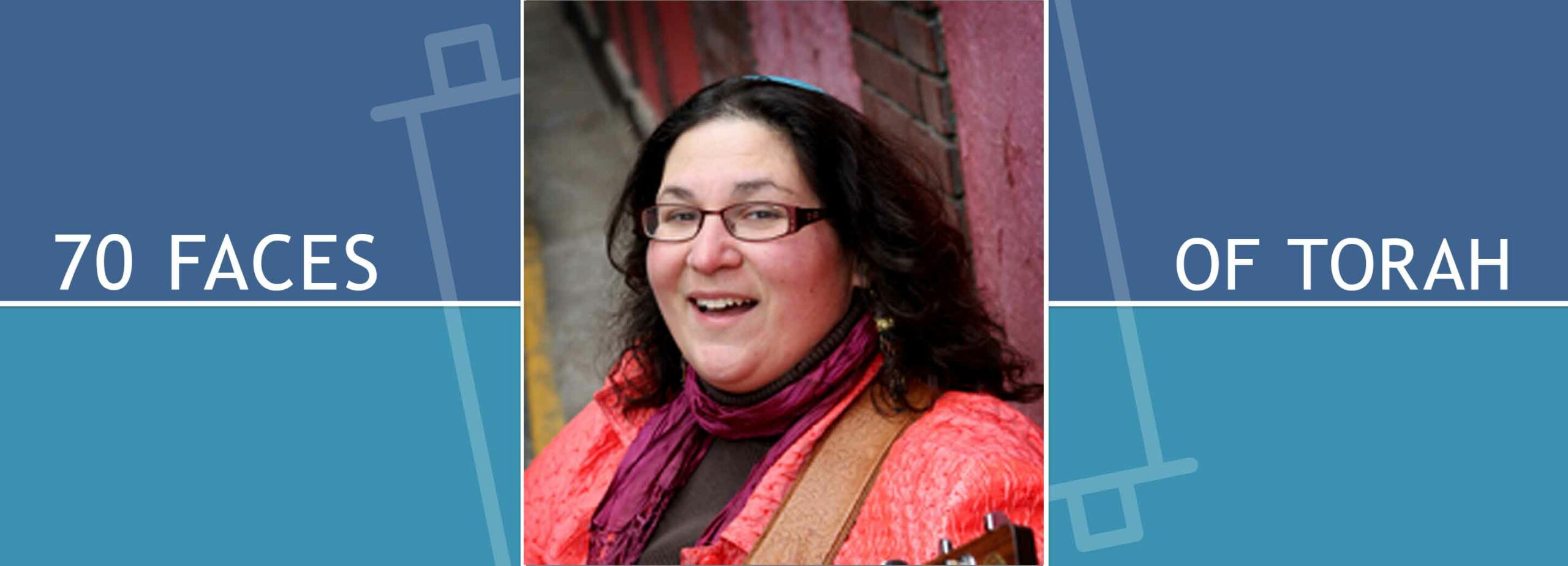Exodus Honoring the Blank Spaces

Parshat B’shalach, Exodus 13:17-17:16
Walking home from my set at the Jerusalem Folk Evening, I begin to realize that my abs hurt. This feeling after singing — like I’ve been overly enthusiastic doing crunches on the first day of a new workout regimen — is one I know mostly from the end of Yom Kippur; after that prayer marathon, my achy abs (a reminder that I have poured so much physical energy into singing) feel well earned. But I’m amused to find that I’ve managed to work that hard spending forty minutes singing Gordon Lightfoot and Pete Seeger tunes.
Lately, I have been learning new ways to inhale, finding new spaces for my breath to fill the shrinking space available to it as my belly joyously fills up with baby. So it should be no surprise that I am also using more muscle to support my breath and also breathing more frequently during each song. I am very much my own voice student these days, sympathizing deeply with my students as now I too puzzle over how and when to breathe, and how to make it to the end of a phrase without running out of breath.
Many of my voice students come to me with the belief that inhaling while singing is a necessary evil. They are often apologetic about “having to breathe,” as if the need to breathe while singing were somehow a sign that they weren’t doing it right. Or they worry that they don’t have as much breath as other people (usually imaginary people) who are “better singers” than they are.
How do I respond? My answer to their worries is connected with how I read the most distinctive feature of this week’s Torah portion.
Parshat B’shalach has at its heart the Song of the Sea, a victory song the Israelites sing in response to their miraculous redemption from Pharaoh and his pursuing army. The Shabbat on which we publicly read this section of Torah is even named for that song; it is called “Shabbat Shira” (the Sabbath of Song). The Song is ancient (thought by many scholars to be older than the prose narrative that surrounds it), and serves in rabbinic tradition as a prototype for every occasion in which we are called upon to offer song as a response to being rescued from near-certain disaster.
While most of the Torah is written in single columns with the words reaching straight across each line, the Song of the Sea has a strikingly different layout. Phrases of song are stacked in a staggered pattern in the column of text. The Talmud (BT Megillah 16b) describes this pattern as “a half brick over a whole brick, and a whole brick over a half brick.” And in between these bricks? Wide blank spaces.
Why these open territories of parchment in a scroll that is usually so economical with space? Yaacov Culi, in his 18th-century Torah commentary Me’am Lo’ez, says that the blank spaces indicate gaps in our knowledge of God and in our ability to fully offer praise. But to me, this pattern of alternating song and silence comes to teach us to honor as sacred the role of breath in song.
Just as the lines in the Song are laid out like bricks, our breath is singing’s most basic building block: the quiet space of the inhalation as much a part of song’s structure as the letters and words we breathe out. In the most obvious physical sense, we need a good in-breath to allow us to sing on the exhale. Musically too, the space of the inhalation places our singing within a rhythmic structure. But what I often find my students need to hear is that letting ourselves pay more attention to when we breathe in, honoring that space, allows us to more fully inhabit, with our whole selves, the realm of song. The in-breath is the vast subconscious to the out-breath’s conscious mind. The in-breath acknowledges the unsayable; the exhalation celebrates everything we’ve got to sing about. The in-breath is the gasp of wordless wonder that both follows and allows for our word-filled witnessing of daily miracles.
As we stood on the shores of the sea, our breath made room for loudly praising everything that allowed us to survive, while silently breathing in those moments of stillness, of relief, of disbelief, even of horror, at the sight of the drowning Egyptians—and not knowing where we were going next or how we would get there.
Making this kind of space can certainly be hard work, as my sore abdominal muscles remind me. But breathing in is far from being a necessary evil, something we ideally wouldn’t have to do in order to sing or to fully live. Like every silence in our lives, our in-breath deserves to be honored as sacred along with our words of song and speech, to be given its due thoughtfully and lovingly–as the holy spaciousness that makes possible our singing and speaking.
This is the teaching I take from the distinctive layout of the Song of the Sea: the space of the in-breath is the birthplace of all song. Honoring this space, no matter how limited it or we may be, allows us to reconnect, throughout our songs and throughout our lives, with the Infinite from which all song flows.
Rabbi Minna Bromberg, Rab’10 (minnabromberg.com) is a singer, songwriter and rabbi, and serves as coordinator of the Year in Israel Program for the Rabbinical School of Hebrew College.

